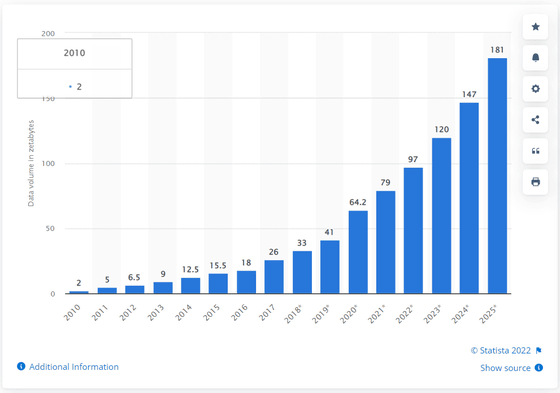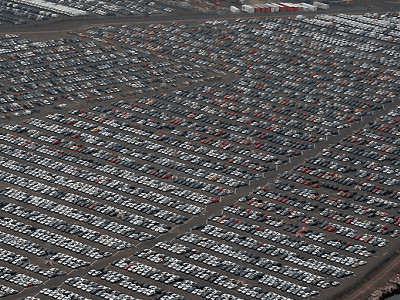'Dark data' left unused in the server threatens the environment of the earth

More than half of a company's digital data is collected and stored in databases. However, many of them are never reused, such as multiple identical images stored in Google Photos and iCloud, old spreadsheets that are never used again, and unnecessary data collected from the Internet. Such 'dark data' takes up space on your server and consumes a lot of power. Professor Tom Jackson and Professor Ian R. Hodgkinson of
'Dark data' is killing the planet – we need digital decarbonization
https://theconversation.com/dark-data-is-killing-the-planet-we-need-digital-decarbonisation-190423
Many environmental activists are focused on limiting carbon emissions from the automobile, aircraft and energy industries. Many companies with SDGs (Sustainable Development Goals) are trying to reduce carbon dioxide emissions, but generally they are taking measures to reduce carbon dioxide emissions from product manufacturing and transportation. .
On the other hand, the amount of emissions due to digital data is still increasing. Data from the research company Statista points out that as of 2020, ``digital data has already generated 4% of the world's greenhouse gas emissions.'' It is estimated that 97 zettabytes (97 trillion gigabytes) of data will be generated by 2022, and it has been suggested that by 2025, this could almost double to 181 zettabytes.

Digitization is often thought of as carbon neutral, but that is not always the case. Therefore, Professor Jackson and Professor Hodgkinson advocate the idea of 'Digital Decarbonization'.
Digital decarbonization does not mean ``reducing an organization's carbon footprint by using digital technologies such as phones, computers, and sensors,'' but rather ``reducing carbon dioxide emissions by preserving digital data.'' To do. “Digitalization itself is not an environmental issue, but it is important to recognize that how we use digitization in our day-to-day workplace activities has a significant impact on the environment,” said Professors Jackson and Hodgkinson. says.

According to Professor Jackson and Professor Hodgkinson's calculations, in a typical data-based business such as insurance and banking, 100 employees generate 2983 gigabytes of dark data per day. Storing that data for a year would generate the same carbon footprint as flying from London to New York six times. In addition, the amount of dark data generated worldwide has reached 1.3 billion gigabytes per day, which is the same as traveling from London to New York by plane more than 3 million times.
Professor Jackson and Professor Hodgkinson said, ``Start by throwing away unnecessary photos and videos for yourself.All files stored in Apple's iCloud and Google Photos will be added to your digital carbon footprint. I will.”
Related Posts:
in Note, Posted by log1i_yk







